Table of Contents
- Modern healthcare is a complex and dynamic field that relies on a diverse team of professionals working together to provide comprehensive care to patients. While doctors and nurses are often the most visible faces of healthcare, there is another crucial group that plays a vital role in patient care
- Who Are Allied Health Professionals?
- Diagnostic Professionals
- Therapists
- Nutritionists and Dietitians
- Pharmacists
- Respiratory Therapists
- Diagnostic Expertise
- Rehabilitation and Therapy
- Preventative Care
- Medication Management
- Respiratory Health
- Enhancing Patient-Centered Care
- The Unsung Heroes of Healthcare
Modern healthcare is a complex and dynamic field that relies on a diverse team of professionals working together to provide comprehensive care to patients. While doctors and nurses are often the most visible faces of healthcare, there is another crucial group that plays a vital role in patient care
allied health professionals. These dedicated individuals bring a wide range of expertise and skills to the healthcare system, contributing significantly to patient well-being and the overall quality of care. This article explores the essential role of allied health professionals in modern healthcare.
Allied health professionals form an indispensable backbone of the healthcare system, often working diligently behind the scenes to ensure patients receive comprehensive, holistic care. These dedicated individuals bring a diverse array of expertise and skills to the forefront, making their contributions invaluable in enhancing patient well-being and the overall quality of healthcare services. In an era where healthcare is increasingly complex and multidisciplinary, it is crucial to recognize and celebrate the essential role of allied health professionals in modern healthcare.
From physical therapists who help patients regain mobility and strength to dietitians who provide crucial guidance on nutrition and wellness, allied health professionals offer specialized knowledge that complements the work of physicians and nurses. Their interventions are pivotal in preventing, diagnosing, and managing a wide spectrum of medical conditions, chronic diseases, and disabilities. Whether it’s a speech therapist aiding a child with communication difficulties or a respiratory therapist assisting a patient with breathing problems, these professionals work tirelessly to optimize patients’ physical, mental, and emotional well-being.
Furthermore, allied health professionals are often at the forefront of health education and disease prevention. Health educators, for instance, play a vital role in disseminating critical information about healthy lifestyles, disease prevention, and early intervention. This proactive approach not only improves individual health outcomes but also helps reduce the burden on healthcare systems by preventing the onset of preventable diseases.
In today’s healthcare landscape, marked by a growing emphasis on patient-centered care, allied health professionals excel at fostering strong patient-provider relationships. They often spend extended time with patients, providing education, support, and counseling to empower individuals in managing their health. This personalized approach not only improves patient satisfaction but also contributes to better treatment adherence and outcomes.
Moreover, the importance of allied health professionals extends to research and innovation. They actively engage in research projects, clinical trials, and evidence-based practices, driving advancements in their respective fields. These contributions help shape the future of healthcare, leading to more effective treatments, better rehabilitation techniques, and improved healthcare delivery models.
As the healthcare landscape continues to evolve, recognizing and valuing the essential role of allied health professionals is paramount. Their commitment to patient care, their specialized expertise, and their collaborative approach to healthcare make them invaluable members of the healthcare team. By fostering a deeper understanding of their contributions, we not only acknowledge their dedication but also ensure that patients receive the comprehensive and high-quality care they deserve in the modern healthcare ecosystem.
For a comprehensive look at this subject, we invite you to read more on this dedicated page: Interprofessional collaboration in health care – PMC
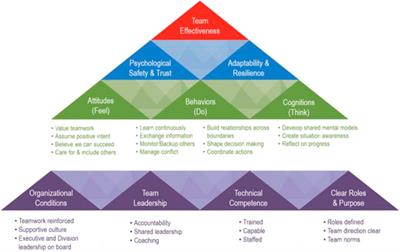
Who Are Allied Health Professionals?
Allied health professionals encompass a vast and diverse group of healthcare workers who are not physicians, nurses, or dentists. They hold specialized roles across various healthcare settings, including hospitals, clinics, rehabilitation centers, and private practices. Some common categories of allied health professionals include:
Allied health professionals, often unsung heroes of the healthcare world, constitute a rich tapestry of skilled individuals contributing significantly to patient care and well-being. Their roles are as varied as the healthcare landscape itself, and they bring a wealth of expertise to diverse healthcare settings. Let’s delve deeper into the world of allied health professionals:
1. Diagnostic Experts: Radiologic technologists, clinical laboratory scientists, and medical sonographers are indispensable in the diagnostic process. They operate cutting-edge equipment, conduct tests, and analyze samples, playing a pivotal role in identifying and diagnosing medical conditions.
2. Therapists: Physical therapists, occupational therapists, and speech-language pathologists focus on rehabilitation and improving patients’ quality of life. They work with individuals recovering from injuries, surgeries, or managing chronic conditions, helping them regain their independence and communication abilities.
3. Respiratory Care Specialists: Respiratory therapists are critical in managing patients with breathing disorders, such as asthma, chronic obstructive pulmonary disease (COPD), or those requiring ventilator support. They ensure patients receive proper respiratory care and therapy.
4. Nutrition and Dietetics Experts: Registered dietitians and nutritionists help patients optimize their dietary choices to manage chronic conditions, maintain a healthy weight, and support overall wellness. Their guidance is essential in promoting long-term health.
5. Rehabilitation Professionals: Occupational therapy assistants, physical therapist assistants, and speech-language pathology assistants provide essential support to therapists. They work closely with patients to implement treatment plans, monitor progress, and ensure continuity of care.
6. Medical Social Workers: Medical social workers play a crucial role in addressing the psychosocial aspects of healthcare. They assist patients and their families in navigating the emotional, financial, and social challenges that often accompany illness or injury.
7. Pharmacy Specialists: Pharmacists and pharmacy technicians are experts in medications. They ensure the safe and effective use of drugs, provide medication counseling, and work collaboratively with healthcare teams to optimize drug therapy.
8. Health Information Management: Health information managers and technicians maintain and secure patient records, ensuring that healthcare providers have accurate and timely information for diagnosis and treatment.
9. Cardiovascular Professionals: Cardiovascular technologists, perfusionists, and vascular specialists specialize in diagnosing and treating heart and vascular conditions. They perform diagnostic tests, assist during surgeries, and support patients with cardiac issues.
10. Podiatrists: Podiatrists focus on diagnosing and treating conditions related to the feet, ankles, and lower extremities. They play a crucial role in helping patients maintain mobility and overall foot health.
11. Mental Health Professionals: Psychologists, psychiatric nurses, and psychiatric technicians are vital in addressing mental health and behavioral concerns. They provide counseling, therapy, and support to individuals dealing with psychological challenges.
These categories represent just a fraction of the allied health professionals who work collaboratively with physicians, nurses, and dentists to deliver comprehensive and patient-centered care. Their expertise and dedication contribute significantly to the healthcare system’s success, ensuring that patients receive holistic, multidisciplinary care tailored to their specific needs.
Should you desire more in-depth information, it’s available for your perusal on this page: Can clinical supervision sustain our workforce in the current …

Diagnostic Professionals
This group includes radiologic technologists, medical laboratory scientists, and diagnostic medical sonographers who perform various tests and procedures to help diagnose and monitor medical conditions.
nullExplore this link for a more extensive examination of the topic: Canada’s Health Care System – Canada.ca
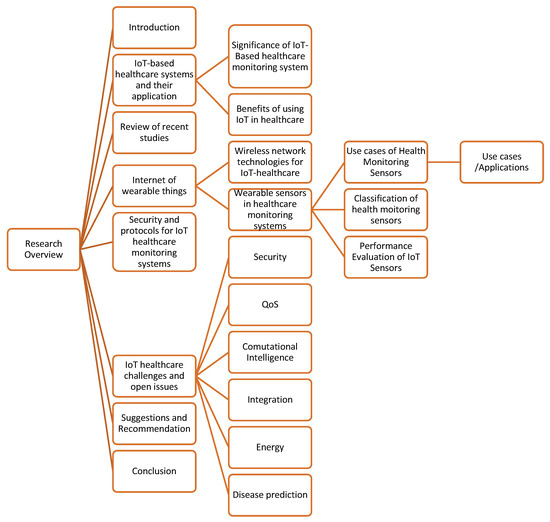
Therapists
Occupational therapists, physical therapists, and speech-language pathologists work with patients to improve their physical, cognitive, and communication skills, promoting recovery and independence.
Occupational therapists, physical therapists, and speech-language pathologists are essential members of the healthcare team, each contributing their unique expertise to enhance patients’ overall well-being and quality of life.
Occupational therapists focus on helping individuals regain independence in their daily activities. They assess patients’ physical and cognitive abilities and create personalized interventions to address challenges. Whether it’s teaching adaptive techniques for dressing, modifying home environments for accessibility, or developing strategies to improve memory and problem-solving skills, occupational therapists empower patients to regain control of their lives.
Physical therapists specialize in restoring physical function and mobility. They work with patients recovering from injuries, surgeries, or illnesses to alleviate pain, improve strength, and enhance flexibility. Through targeted exercises and techniques, physical therapists help patients regain their ability to walk, move, and perform activities they once took for granted, ultimately improving their overall quality of life.
Speech-language pathologists play a critical role in helping patients regain their ability to communicate effectively. Whether it’s due to a stroke, traumatic brain injury, or developmental issues, speech-language pathologists assess speech, language, and cognitive functions and develop customized therapies to address these challenges. Their work extends beyond speech to encompass swallowing difficulties, voice disorders, and cognitive communication impairments.
Collectively, these healthcare professionals provide a holistic approach to patient care, addressing physical, cognitive, and communication needs. Their expertise and dedication not only promote recovery but also empower patients to regain independence and improve their overall quality of life. Through their collaborative efforts, patients can overcome obstacles, achieve their goals, and look forward to a brighter and more fulfilling future.
Should you desire more in-depth information, it’s available for your perusal on this page: Extended roles for allied health professionals: an updated …

Nutritionists and Dietitians
These professionals provide dietary advice, nutrition education, and meal planning to promote healthy eating habits and manage various medical conditions.
These dedicated professionals, often referred to as dietitians or nutritionists, play a crucial role in the realm of healthcare and well-being. Their expertise extends far beyond merely recommending dietary adjustments; they serve as the cornerstone of informed and balanced nutrition for individuals of all ages and backgrounds.
In their role, these professionals go beyond the generic concept of healthy eating and delve into the intricate nuances of nutrition. They tailor their guidance to meet the unique needs and goals of each client, recognizing that what works for one person may not work for another. This personalized approach takes into account an individual’s medical history, dietary preferences, cultural background, and lifestyle, ensuring that their advice is both practical and sustainable.
Furthermore, dietitians and nutritionists are not only focused on preventative health but are also equipped to manage a wide range of medical conditions. They work closely with patients suffering from chronic diseases such as diabetes, heart disease, and obesity, crafting specialized meal plans and strategies that help alleviate symptoms and improve overall well-being. Their expertise extends to understanding the intricate relationship between food and health, allowing them to recommend dietary interventions that complement medical treatments.
Beyond their role in clinical settings, dietitians and nutritionists are instrumental in community outreach and education. They engage in public health initiatives, school programs, and community workshops to disseminate knowledge about the importance of balanced nutrition. Through their efforts, they empower individuals and communities to make informed food choices, thereby reducing the burden of diet-related health issues on society as a whole.
In the age of ever-evolving nutrition trends and fad diets, dietitians and nutritionists serve as reliable sources of evidence-based information. They sift through the vast sea of nutritional information to provide clarity and dispel myths, promoting a science-backed approach to healthy eating. Their dedication to ongoing education ensures that they stay updated with the latest research, enabling them to offer the most current and effective guidance.
In essence, these professionals are not just advisers but trusted partners on one’s journey to better health and well-being. They offer a holistic approach that encompasses education, guidance, and support, all with the ultimate goal of helping individuals achieve their health objectives and enjoy a higher quality of life through the power of nutrition.
If you’d like to dive deeper into this subject, there’s more to discover on this page: Cultural Competence in Caring for American Indians and Alaska …
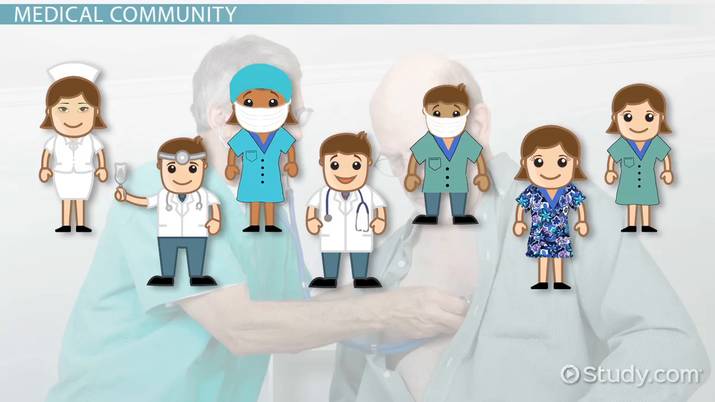
Pharmacists
Pharmacists play a critical role in medication management, ensuring the safe and effective use of medications, counseling patients, and collaborating with healthcare teams.
Pharmacists play a multifaceted and indispensable role in the realm of healthcare. Their contributions extend far beyond simply dispensing medications. At the heart of their responsibilities lies the crucial task of medication management, which encompasses a wide range of activities aimed at guaranteeing the safe and effective use of medications.
One of the most prominent facets of a pharmacist’s role is counseling patients. They serve as trusted healthcare advisors, providing patients with essential information about their medications. This guidance encompasses not only instructions on how to take medications but also explanations about potential side effects, drug interactions, and the importance of adherence. Such counseling sessions empower patients to make informed decisions about their treatment, fostering a sense of autonomy and understanding about their health.
Pharmacists are also pivotal members of the healthcare team, collaborating closely with physicians, nurses, and other healthcare professionals. This collaboration is vital for optimizing patient care. They provide valuable insights into medication selection and dosage, helping to prevent adverse drug events and improve treatment outcomes. Their expertise in drug interactions and compatibility is invaluable in ensuring that a patient’s overall medication regimen is safe and effective.
Moreover, pharmacists are on the front lines of patient safety. They are vigilant gatekeepers, conducting thorough checks to prevent medication errors and adverse reactions. Their meticulous attention to detail is a critical safeguard in healthcare settings, helping to minimize risks and protect patients from harm.
In addition to their direct patient care responsibilities, pharmacists also contribute to healthcare through research, education, and policy development. They engage in ongoing research to advance the field of pharmacology and develop new medications and therapies. They also educate future pharmacists and healthcare professionals, passing on their wealth of knowledge to the next generation. Furthermore, they actively participate in shaping healthcare policies and regulations, advocating for changes that enhance patient safety and access to medications.
In essence, pharmacists are integral to the healthcare ecosystem, serving as pillars of medication management, patient education, and interprofessional collaboration. Their dedication and expertise contribute significantly to the well-being and health outcomes of patients, making them indispensable members of the healthcare community.
For a comprehensive look at this subject, we invite you to read more on this dedicated page: Challenges Facing the Health System and Implications for …
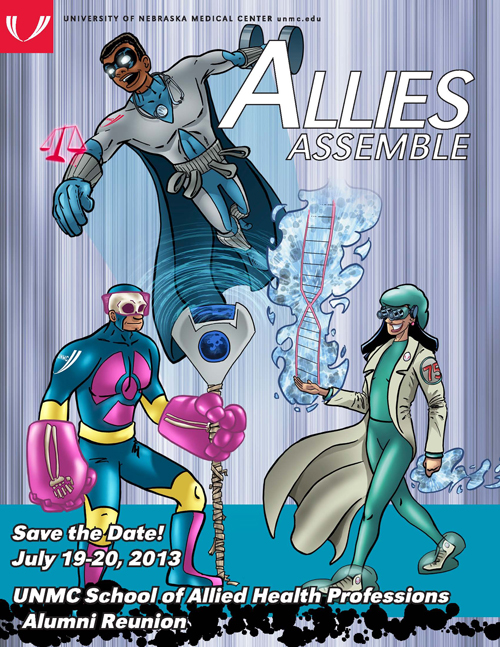
Respiratory Therapists
Respiratory therapists specialize in treating patients with breathing disorders, such as asthma or chronic obstructive pulmonary disease (COPD), using breathing treatments and ventilator management.
nullYou can also read more about this here: What is Allied Health? — ASAHP
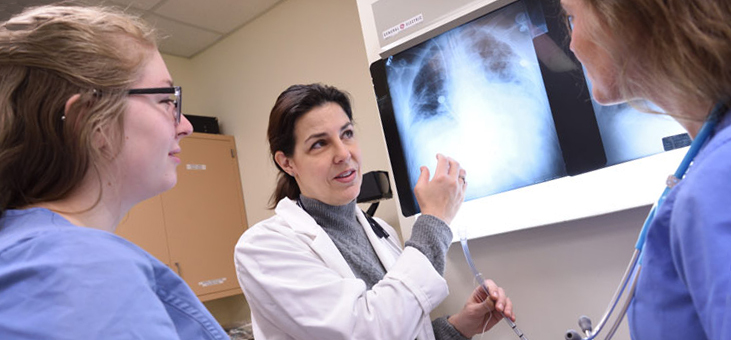
Diagnostic Expertise
Allied health professionals are often responsible for conducting a wide range of diagnostic tests and procedures, such as X-rays, MRI scans, laboratory tests, and ultrasounds. Their accurate and timely assessments provide valuable information that guides physicians in making informed decisions about patient care.
Allied health professionals are often responsible for conducting a wide range of diagnostic tests and procedures, such as X-rays, MRI scans, laboratory tests, and ultrasounds. Their accurate and timely assessments provide valuable information that guides physicians in making informed decisions about patient care.
The critical role of allied health professionals in diagnostics cannot be overstated. Their expertise extends across various domains, each contributing to a comprehensive understanding of a patient’s health:
Radiologic Technologists: Radiologic technologists, including radiographers and MRI technologists, operate imaging equipment to capture detailed images of the body’s internal structures. These images are essential for diagnosing conditions ranging from broken bones to tumors. Their precision and attention to detail ensure that physicians have the clearest possible images for accurate diagnoses.
Medical Laboratory Technologists: Medical laboratory technologists and technicians play a behind-the-scenes but crucial role in healthcare. They perform a wide range of tests on blood, urine, tissue samples, and other bodily fluids. These tests aid in the diagnosis of diseases, monitoring treatment effectiveness, and screening for various health conditions. The accuracy of their work directly impacts the reliability of clinical assessments.
Sonographers: Sonographers, specializing in ultrasound technology, use sound waves to create images of internal body structures, such as organs and developing fetuses. Their expertise is invaluable in obstetrics, cardiology, and many other medical specialties. These non-invasive, real-time images help guide treatment decisions and monitor the progression of diseases.
Respiratory Therapists: Respiratory therapists evaluate and treat patients with breathing disorders. They conduct tests like spirometry to assess lung function and arterial blood gases to determine oxygen and carbon dioxide levels in the blood. Their insights are critical for managing conditions such as asthma, chronic obstructive pulmonary disease (COPD), and respiratory distress in critically ill patients.
Cardiovascular Technologists: Cardiovascular technologists assist in diagnosing and treating heart and blood vessel conditions. They perform procedures such as echocardiograms and stress tests to assess cardiac function. Their work is essential in identifying heart disease and planning appropriate interventions.
Dietitians and Nutritionists: While not directly involved in diagnostics through imaging or lab tests, dietitians and nutritionists play a crucial role in assessing a patient’s nutritional needs. Their expertise is instrumental in managing conditions like diabetes, obesity, and cardiovascular disease. Proper nutrition can significantly impact a patient’s health and recovery.
Physical and Occupational Therapists: These professionals assess a patient’s physical and functional abilities, helping to diagnose and treat musculoskeletal and neurological conditions. Their evaluations guide rehabilitation programs and improve patients’ quality of life after injuries or surgeries.
Speech-Language Pathologists: Speech-language pathologists diagnose and treat communication and swallowing disorders. Their assessments are vital for identifying speech impediments, language delays, and disorders such as aphasia. Early intervention by speech-language pathologists can lead to better communication outcomes.
In conclusion, allied health professionals are the unsung heroes of the healthcare system. Their expertise in diagnostics and patient evaluation is the foundation upon which accurate medical decisions are made. The collaborative efforts of these professionals with physicians and other healthcare providers ensure that patients receive timely, effective, and tailored care, ultimately leading to better health outcomes and improved overall well-being.
Should you desire more in-depth information, it’s available for your perusal on this page: Telemedicine for healthcare: Capabilities, features, barriers, and …

Rehabilitation and Therapy
Occupational therapists, physical therapists, and speech-language pathologists play pivotal roles in helping patients regain independence and improve their quality of life after illness, injury, or surgery. They design personalized rehabilitation plans and provide ongoing support.
Occupational therapists, physical therapists, and speech-language pathologists are the unsung heroes in the journey to recovery for countless patients. Their roles extend far beyond the clinical setting; they become partners in the process of regaining not just physical abilities but also confidence, independence, and overall well-being.
Personalized Rehabilitation Plans
One of the distinguishing features of these allied health professionals is their ability to craft highly individualized rehabilitation plans. They consider not only the specific medical condition or injury but also the patient’s unique needs, goals, and aspirations. For example:
Occupational therapists assess a patient’s ability to perform daily activities and work tasks. They create customized plans that may involve adaptive techniques, assistive devices, and home modifications to maximize independence.
Physical therapists focus on improving a patient’s physical function, strength, and mobility. Their plans include targeted exercises, manual therapies, and techniques to reduce pain and enhance physical performance.
Speech-language pathologists address communication and swallowing disorders. Their rehabilitation plans encompass exercises to improve speech and language skills, as well as techniques to help patients regain their ability to eat and drink safely.
Empowering Patients
Beyond physical rehabilitation, these professionals empower patients with the knowledge and skills to manage their conditions independently. They educate patients and their families about the importance of exercises, strategies for overcoming challenges, and methods for preventing future issues. This empowerment extends beyond the clinical setting, fostering self-sufficiency and self-confidence.
For example, a physical therapist may teach a patient with a chronic condition specific exercises to manage pain and maintain mobility at home. An occupational therapist may instruct a stroke survivor on adaptive techniques for dressing, cooking, or driving, enabling them to reclaim elements of their pre-stroke life. A speech-language pathologist may work with a patient who has experienced a traumatic brain injury, providing strategies to improve communication and social interaction.
Ongoing Support and Progress Tracking
Recovery is seldom a linear process, and setbacks can be disheartening. Occupational therapists, physical therapists, and speech-language pathologists offer crucial ongoing support. They continuously assess a patient’s progress, make necessary adjustments to treatment plans, and provide emotional support to navigate the ups and downs of recovery.
Moreover, they serve as motivators and cheerleaders, celebrating even small victories along the way. This encouragement not only boosts the patient’s morale but also contributes significantly to the effectiveness of rehabilitation.
The Broader Impact on Healthcare
The work of these allied health professionals extends beyond individual patient care; it has a broader impact on healthcare as a whole. By helping patients regain independence and improve their quality of life, they contribute to reduced healthcare costs, shorter hospital stays, and improved overall well-being.
In conclusion, occupational therapists, physical therapists, and speech-language pathologists are essential pillars of modern healthcare. Their ability to design personalized rehabilitation plans, empower patients, offer ongoing support, and track progress makes them invaluable partners in the journey to recovery. They don’t just heal bodies; they help rebuild lives and restore hope to those they serve. Their dedication and expertise are cornerstones of patient-centered, holistic healthcare.
Don’t stop here; you can continue your exploration by following this link for more details: Telemedicine for healthcare: Capabilities, features, barriers, and …
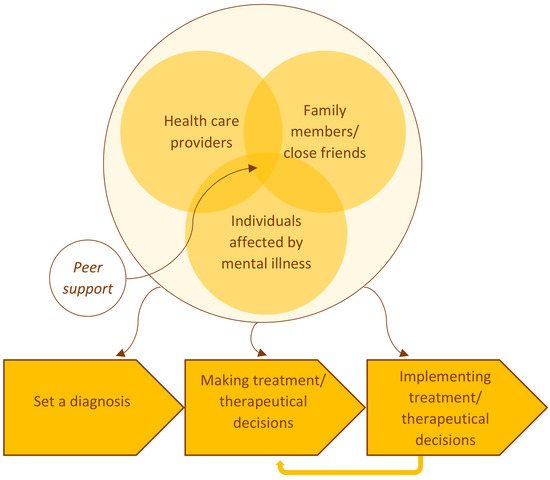
Preventative Care
Nutritionists and dietitians educate patients about healthy eating habits and design dietary plans to manage chronic conditions like diabetes and heart disease. Their expertise in preventative care is essential for improving long-term health outcomes.
Nutritionists and dietitians play a pivotal role in the realm of healthcare, serving as educators and strategists in the pursuit of better health. Their expertise extends far beyond meal planning; it encompasses the profound impact of food choices on overall well-being. These professionals not only help individuals manage chronic conditions like diabetes and heart disease but also contribute significantly to preventative care, shaping a healthier future for countless individuals.
In today’s world, where lifestyle-related diseases like diabetes and heart disease are reaching epidemic proportions, the work of nutritionists and dietitians has never been more critical. They provide patients with the knowledge and tools needed to make informed dietary choices that can prevent or mitigate the onset and progression of these conditions. Through personalized dietary plans, they empower patients to take control of their health, emphasizing that food can be a potent form of medicine.
Furthermore, nutritionists and dietitians are champions of preventative care, a cornerstone of modern healthcare. By focusing on the root causes of health issues and emphasizing the importance of a balanced diet, they reduce the burden on the healthcare system and help individuals live healthier, more fulfilling lives. Their work contributes to reducing healthcare costs and improving the overall quality of life for individuals and communities.
In an era of information overload and fad diets, the guidance provided by nutritionists and dietitians is invaluable. They sift through the noise to offer evidence-based recommendations, ensuring that individuals receive accurate and tailored advice. This not only promotes better health outcomes but also fosters a sense of trust in healthcare professionals, encouraging patients to actively engage in their own health management.
In conclusion, nutritionists and dietitians are unsung heroes in the healthcare landscape. Their commitment to educating patients about healthy eating habits, their expertise in managing chronic conditions, and their unwavering focus on preventative care all contribute to a healthier and more vibrant future. As we continue to navigate the challenges of modern health, their role remains essential in the pursuit of improved long-term health outcomes and a healthier society as a whole.
To delve further into this matter, we encourage you to check out the additional resources provided here: Cultural Competence in Caring for American Indians and Alaska …

Medication Management
Pharmacists ensure the safe and effective use of medications, reducing the risk of adverse drug interactions and medication errors. Their counseling helps patients understand their medications and adhere to prescribed regimens.
nullLooking for more insights? You’ll find them right here in our extended coverage: Leadership in healthcare education | BMC Medical Education | Full …

Respiratory Health
Respiratory therapists assist patients with respiratory conditions in managing their symptoms and improving lung function. They are vital in critical care settings, managing ventilators and life support equipment.
Respiratory therapists play an indispensable role in the healthcare ecosystem, providing essential care to individuals with a wide range of respiratory conditions. Their expertise extends far beyond the basic management of symptoms; they are instrumental in transforming the lives of patients in various ways:
Individualized Care: Respiratory therapists tailor their care to each patient’s unique needs. Whether it’s a child with asthma, an adult with chronic obstructive pulmonary disease (COPD), or a patient recovering from surgery, these professionals design personalized treatment plans to optimize lung function and improve overall well-being.
Critical Care Leadership: In critical care settings, such as intensive care units (ICUs) and emergency departments, respiratory therapists are at the forefront of patient care. They are responsible for managing ventilators and life support equipment, ensuring that patients receive the precise level of respiratory support they require during critical moments. Their expertise can make the difference between life and death.
Patient Education: Respiratory therapists empower patients and their families with the knowledge and skills needed to manage respiratory conditions effectively. They educate patients on proper inhaler techniques, oxygen therapy, and lifestyle modifications, enabling patients to take an active role in their own care.
Pulmonary Rehabilitation: Beyond acute care, respiratory therapists are vital in pulmonary rehabilitation programs. These programs help individuals with chronic respiratory conditions regain strength and improve their quality of life. Respiratory therapists guide patients through exercises and breathing techniques, helping them build endurance and reduce symptoms.
Disease Prevention: These professionals also contribute to public health by assisting in the prevention of respiratory diseases. They work on smoking cessation programs, conduct lung function screenings, and provide guidance on pollution reduction and allergy management.
Technological Advancements: Respiratory therapy is a field that continually evolves alongside medical technology. Therapists stay updated on the latest advancements, such as new ventilator modes and respiratory medications, to ensure the best possible care for their patients.
Advocacy and Research: Many respiratory therapists engage in advocacy efforts and research projects aimed at improving respiratory care. Their work helps shape healthcare policies and protocols, ultimately benefiting patients on a larger scale.
In summary, respiratory therapists are not just healthcare providers; they are advocates for respiratory health and champions of patient well-being. Their expertise and dedication are indispensable in managing respiratory conditions, alleviating symptoms, and improving the quality of life for countless individuals. In both routine care and life-saving critical situations, respiratory therapists continue to make a profound impact on the healthcare landscape.
Additionally, you can find further information on this topic by visiting this page: What is Allied Health? — ASAHP

Enhancing Patient-Centered Care
The contributions of allied health professionals align with the growing emphasis on patient-centered care in modern healthcare. They work collaboratively with physicians, nurses, and other healthcare providers to address the diverse needs of patients comprehensively. This interdisciplinary approach promotes better outcomes, reduces hospital readmissions, and enhances the overall patient experience.
The contributions of allied health professionals are pivotal in meeting the evolving demands of modern healthcare, which increasingly centers on patient well-being and holistic care. These professionals play a crucial role in the healthcare ecosystem, working synergistically with physicians, nurses, and various other healthcare providers to address the multifaceted needs of patients.
One notable strength of allied health professionals is their ability to provide specialized care tailored to specific patient needs. Whether it’s physical therapists helping patients regain mobility, respiratory therapists assisting with breathing difficulties, or clinical dietitians customizing nutritional plans, their expertise augments the quality of care patients receive. This specialization not only fosters improved patient outcomes but also streamlines the treatment process, reducing healthcare costs and improving overall efficiency.
The interdisciplinary nature of healthcare teams, which include allied health professionals, creates a collaborative environment that benefits patients tremendously. Each member brings a unique skill set and perspective to the table, resulting in comprehensive care that addresses not only the physical aspects of a patient’s condition but also their emotional and social well-being. This holistic approach has been shown to reduce hospital readmissions by addressing the root causes of health issues and providing patients with the tools and support needed for sustainable recovery.
Furthermore, the presence of allied health professionals significantly enhances the overall patient experience. Patients often have diverse needs, including managing chronic conditions, navigating complex treatment plans, and coping with the emotional challenges of illness. Allied health professionals provide crucial education, support, and guidance, empowering patients to actively participate in their care and make informed decisions. This empowerment not only leads to better health outcomes but also fosters a sense of control and confidence among patients.
In conclusion, the contributions of allied health professionals are integral to the modern healthcare landscape. Their collaborative, patient-centered approach leads to improved outcomes, reduced healthcare costs, and a more satisfying patient experience. As healthcare continues to evolve, recognizing and valuing the vital role of these professionals is essential for delivering high-quality, comprehensive care to patients across the globe.
Should you desire more in-depth information, it’s available for your perusal on this page: The Core Competencies Needed for Health Care Professionals …
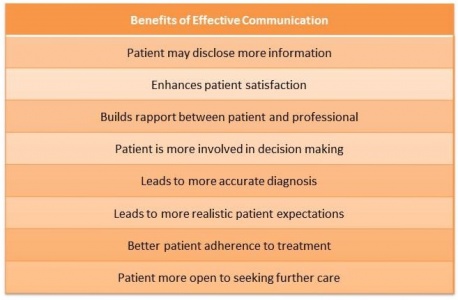
The Unsung Heroes of Healthcare
Allied health professionals are the unsung heroes of modern healthcare. Their expertise, dedication, and collaborative spirit are integral to providing high-quality care and improving patient outcomes. As the healthcare landscape continues to evolve, the role of allied health professionals will only become more critical, ensuring that patients receive the comprehensive, multidisciplinary care they deserve. It’s essential to recognize and appreciate their vital contributions to the healthcare ecosystem.
Allied health professionals, often working behind the scenes, play a pivotal role in the intricate web of healthcare services. These dedicated individuals encompass a wide range of specialties, from respiratory therapists and radiologic technologists to speech-language pathologists and dietitians. Their diverse skill sets contribute significantly to the holistic care of patients, addressing not just physical ailments but also the emotional and psychological aspects of well-being.
In a healthcare landscape marked by constant change and innovation, the importance of allied health professionals continues to grow. As new technologies and treatment modalities emerge, these professionals adapt and expand their knowledge to stay at the forefront of patient care. Their ability to collaborate seamlessly with physicians, nurses, and other healthcare providers ensures a cohesive and patient-centric approach to treatment.
Moreover, allied health professionals often serve as educators and advocates for patients, empowering them with knowledge to manage their conditions and make informed decisions about their health. This educational role not only improves individual patient outcomes but also contributes to the overall health literacy of communities.
Recognizing the value of allied health professionals is not just a matter of acknowledging their contributions; it’s a strategic imperative for the future of healthcare. Embracing and supporting their essential role will lead to more efficient, effective, and patient-centered care. It will also attract and retain talented individuals in these critical roles, ensuring a robust healthcare workforce for generations to come.
In conclusion, allied health professionals are the unsung heroes who underpin the success of modern healthcare. Their expertise, adaptability, and collaborative spirit are not only integral to patient care but also instrumental in shaping the future of healthcare delivery. It’s incumbent upon us to celebrate and support these dedicated professionals, as they are central to the comprehensive, multidisciplinary care that patients deserve in today’s evolving healthcare ecosystem.
You can also read more about this here: A History of the Public Health System – The Future of Public Health …
More links
To delve further into this matter, we encourage you to check out the additional resources provided here: The Crucial Role of Allied Health Professionals in Australia
